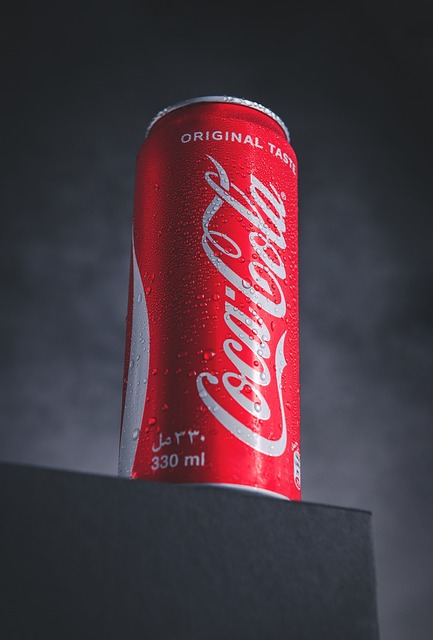Translation services for Product Information Leaflets (PILs) in the UK are crucial for patient safety and informed consent, especially among non-English speakers or those with low literacy. Accurate, professional translations make medical information clear, culturally appropriate, and accessible, adhering to strict guidelines for integrity. This facilitates better patient understanding, treatment adherence, and communication between patients and caregivers, addressing unique language nuances and regulatory requirements in the UK healthcare sector.
Are your Product Information Leaflets (PILs) clear and accessible for UK patients? In today’s diverse healthcare landscape, accurate translation services for PILs are essential to ensure patient safety and adherence to regulatory guidelines. This article explores the critical role of high-quality translation in navigating the complexities of PILs, from understanding their structure in the UK to overcoming language and regulatory challenges. Discover best practices for effective communication, fostering trust, and enhancing patient outcomes through optimal PIL translation and delivery.
- Understanding Product Information Leaflets (PILs) in the UK
- The Role of Accurate Translation Services for PILs
- Challenges in Translating PILs: Language and Regulatory Considerations
- Ensuring Patient Safety Through Clear PIL Communication
- Best Practices for High-Quality PIL Translation and Delivery
Understanding Product Information Leaflets (PILs) in the UK

Product Information Leaflets (PILs) are a vital component of patient safety and informed consent in the UK healthcare system. These leaflets provide essential information about prescribed medications, including their uses, benefits, risks, and side effects. For non-English speaking patients or those with low literacy levels, accessing and understanding PILs can be challenging. This is where translation services for PILs in the UK play a crucial role.
Accurate and professional translation ensures that all patients receive clear, concise, and culturally appropriate information about their medications. Translation services should adhere to strict guidelines to maintain the integrity of medical content while ensuring comprehension for diverse patient populations. By facilitating access to clear PILs, healthcare providers can enhance patient safety, improve adherence to treatment plans, and foster better communication between patients and caregivers.
The Role of Accurate Translation Services for PILs

In today’s diverse healthcare landscape, ensuring clear and accurate communication in Product Information Leaflets (PILs) is paramount for providing effective patient care in the UK. PILs serve as essential resources for patients, offering vital information about medications, including dosage instructions, potential side effects, and contraindications. However, as a growing number of patients come from various linguistic backgrounds, the role of translation services becomes indispensable.
High-quality translation services play a crucial role in ensuring that PILs are accessible and understandable to all UK patients, regardless of their first language. Accurate translations must convey complex medical information while adhering to regulatory requirements. Professional translators with expertise in pharmaceutical terminology ensure that PILs not only maintain their integrity but also comply with the strict standards set by healthcare authorities. This, in turn, helps to prevent potential errors and miscommunications, ultimately enhancing patient safety and satisfaction.
Challenges in Translating PILs: Language and Regulatory Considerations

The translation of Product Information Leaflets (PILs) presents unique challenges, especially when adapting them for a UK audience. PILs, being essential components of pharmaceutical packaging, require precise and clear communication to ensure patient safety. However, translating this content involves more than just word-for-word substitutions. Language nuances, idiomatic expressions, and cultural references must be carefully considered to maintain the integrity of the message. For instance, certain terms or concepts might not have direct equivalents in different languages, necessitating creative solutions by professional translators.
Regulatory compliance is another critical aspect. The UK has specific guidelines and requirements for pharmaceutical labeling and packaging, which must be reflected in the translated PILs. Translation services for PILs in the UK should have a deep understanding of these regulations to avoid any discrepancies or potential legal issues. This involves staying updated with local guidelines, ensuring accurate terminology, and adhering to formatting standards to guarantee that the final document is not only linguistically sound but also compliant with UK regulations.
Ensuring Patient Safety Through Clear PIL Communication

In the healthcare sector, effective communication is paramount to ensure patient safety and satisfaction. One critical aspect often overlooked is the clarity and accuracy of Product Information Leaflets (PILs) provided to UK patients. PILs serve as a vital resource for patients to understand their medications, potential side effects, and correct usage instructions. However, language barriers can pose significant risks if not addressed adequately. Translation services for PILs play a pivotal role in bridging this gap by offering accurate and culturally sensitive translations, ensuring that healthcare information is accessible and understandable for all UK residents, regardless of their native language.
When PILs are translated professionally, patients from diverse linguistic backgrounds can make informed decisions about their health. It allows healthcare professionals to communicate critical safety information clearly, reducing the risk of medication errors and adverse reactions. Moreover, clear PIL communication fosters patient trust and engagement, enabling them to actively participate in their treatment plans. This is especially crucial in a multicultural society like the UK, where diverse populations may have varying levels of English proficiency, emphasizing the need for reliable translation services to enhance patient safety and care.
Best Practices for High-Quality PIL Translation and Delivery

Ensuring clear and accurate Product Information Leaflet (PIL) translation is paramount in the UK healthcare sector to facilitate effective patient communication. High-quality PIL translation services for the UK market require a meticulous approach, adhering to best practices that guarantee precision and comprehension. Professional translation companies specialising in medical terminology should be engaged to handle such tasks, ensuring the translated content aligns perfectly with the source material.
Best practices involve employing linguistically competent experts who are also familiar with the UK healthcare system and its regulatory landscape. This expertise ensures that PILs are not just word-for-word translations but accurate representations of the original content, tailored to UK patients’ needs. Additionally, using up-to-date terminology databases and medical glossaries guarantees consistent and precise translation across various medications and treatments.
In ensuring patient safety and effective medication management in the UK, clear and precise translation of Product Information Leaflets (PILs) is paramount. The complex regulatory landscape demands accurate communication that respects cultural nuances and language barriers. High-quality translation services play a pivotal role in this process, bridging the gap between healthcare providers and patients across diverse linguistic backgrounds. By adopting best practices for PIL translation and delivery, including leveraging advanced technology and maintaining regulatory compliance, healthcare professionals can significantly enhance patient understanding and outcomes in the UK market. Translation services for Product Information Leaflets (PILs) UK thus emerge as a critical component in fostering effective medication adherence and safety.
